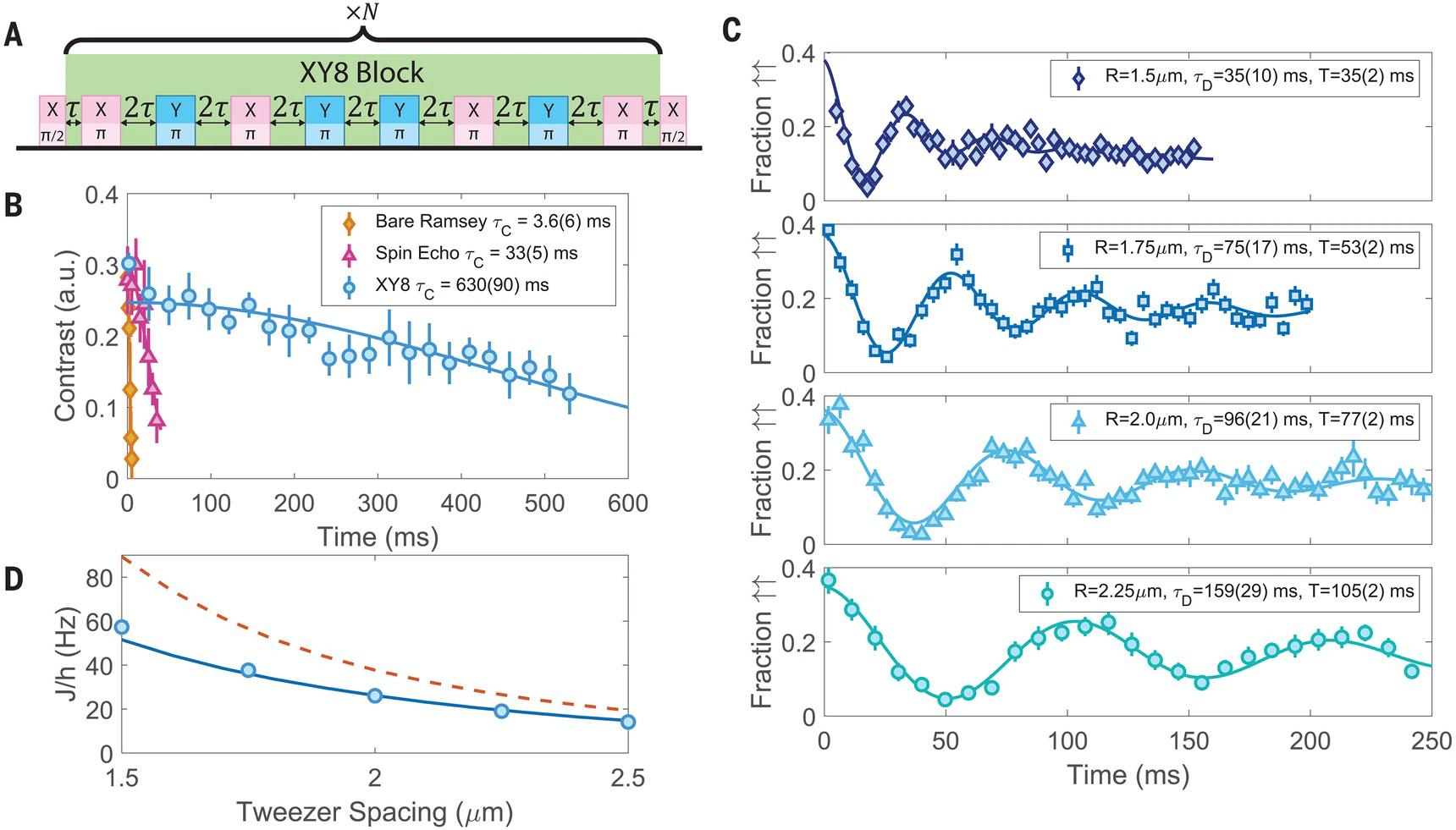
Abstract
Due to their intrinsic electric dipole moments and rich internal structure, ultracold polar molecules are promising candidate qubits for quantum computing and for a wide range of quantum simulations. Their long-lived molecular rotational states form robust qubits while the long-range dipolar interaction between molecules provides quantum entanglement. Using a molecular optical tweezer array, single molecules can be moved and separately addressed for qubit operations using optical and microwave fields, creating a scalable quantum platform. Here, we demonstrate long-range dipolar spin-exchange interactions in pairs of CaF molecules trapped in an optical tweezer array. We control the anisotropic interaction and realize the spin-$\frac{1}{2}$ quantum XY model by encoding an effective spin-$\frac{1}{2}$ system into the rotational states of the molecules. We demonstrate a two-qubit (two-molecule) gate to generate entanglement deterministically, an essential resource for all quantum information applications. Employing interleaved tweezer arrays, we demonstrate high fidelity single site molecular addressability.